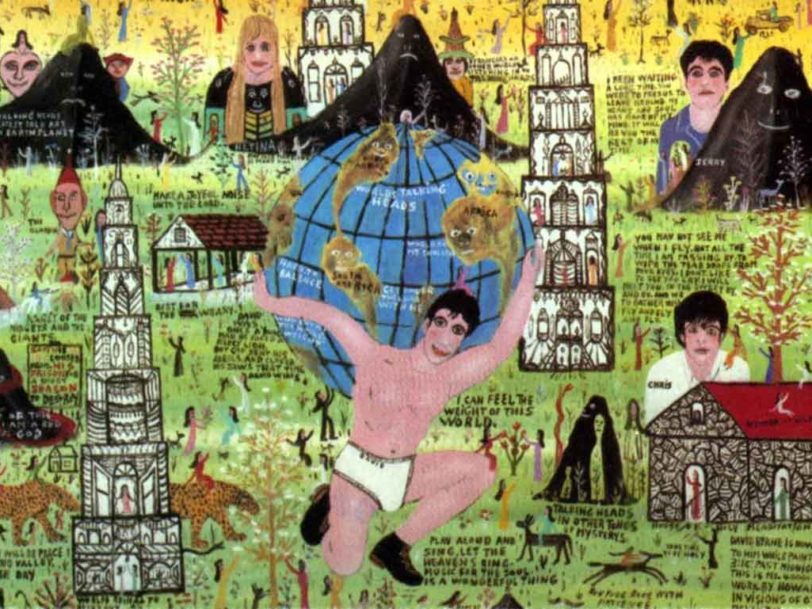By the time Talking Heads released their sixth album, Little Creatures, in June 1985, their fans had become accustomed to expecting the unexpected. Since the release of their debut, Talking Heads: 77, in 1977, the band had consistently defied expectations – they were more melodic and dancefloor-friendly than the punks they were initially lumped in with; they’d made increasingly funk-inspired and avant-garde music as their popularity grew; and with 1984’s spectacular Stop Making Sense, they’d redefined the concert film. But Little Creatures was the biggest gear-shift yet. Talking Heads had made a conventional pop album.
Listen to ‘Little Creatures’ here.
“I’ve gone the long way around”
While previous albums had increasingly seen the band work their material up from jams, taking inspiration from the likes of Afrobeat pioneer Fela Kuti and 70s funkonauts Parliament, this time frontman David Byrne arrived at the Little Creatures sessions with songs already written, as drummer Chris Frantz explained in his 2020 memoir, Remain In Love: “For the first time, David brought us demos of songs he had written, at least for the most part. These demos, recorded on a cassette, were not the wild and funky polyrhythmic songs of Remain In Light or Speaking In Tongues. In fact, they were a return to singer-songwriter-type songs with a heavy dose of Americana thrown in.”
In a profile in The New York Times, published as the band were recording the new album, Byrne explained, “I’ve gone the long way around and come to accept almost the conventional song structure as a valid way of working.”
“It’s fun to play without feeling you have to be avant-garde”
On Little Creatures, Talking Heads cast aside the edgy and claustrophobic textures of Fear Of Music, the looped grooves and African rhythms of Remain In Light and the bugged-out funk of Speaking In Tongues. Album cut Creatures Of Love was given a countrified, shuffling treatment, complete with flourishes of pedal steel courtesy of Eric Weissberg, most famous for his playing on Duelling Banjos, the unforgettably sinister theme from the 1972 thriller Deliverance. Elsewhere, The minor-key verses of Give Me Back My Name could so easily have settled into a brooding storm, but were lightened by Byrds-like jangling guitars, while third single And She Was delivered an infectious piece of bubblegum pop. Road To Nowhere, the album’s calling card, deployed a stirring gospel choir and accordion from zydeco player Jimmy Macdonell.




